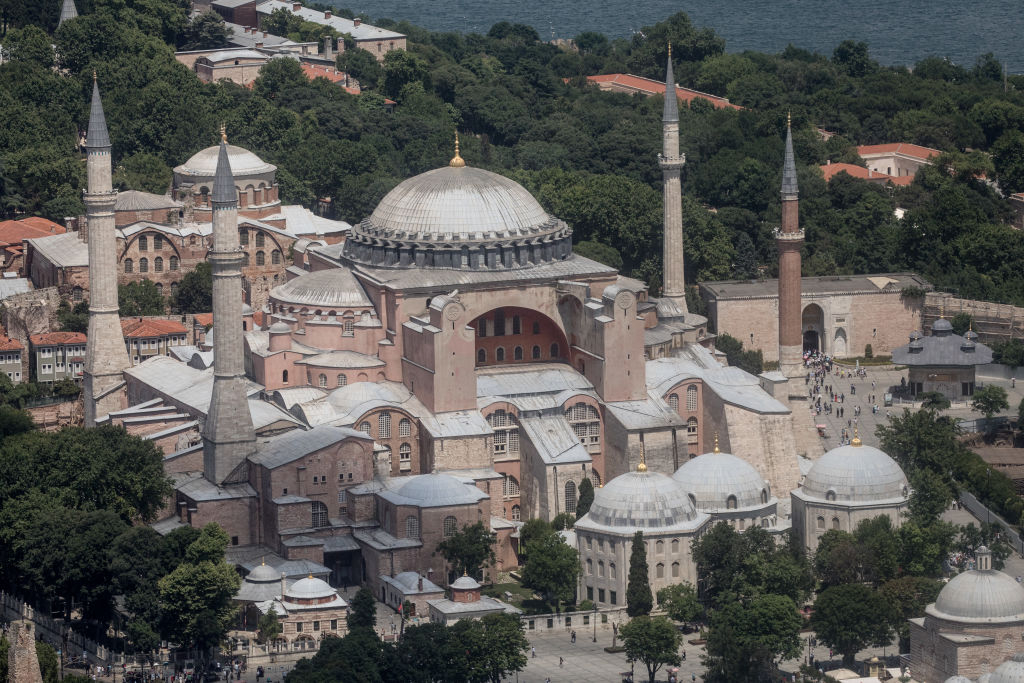by Burak Bekdil • June 20th
In Turkish jargon, the difference is simple: It is "conquest" when we do it and "invasion" when others do it.
In this year's celebrations, President Recep Tayyip Erdoğan raised the stakes when he spoke of the conquest prospectively not just retrospectively. "I am wishing that God grant this nation many more happy conquests," he said....
A serious question remains to be asked: When Erdoğan wished God to grant Turks "many more happy conquests" which non-Turkish lands is he hoping to "conquer"?

The venue for this year's Turkish celebrations of the 1453 conquest of Constantinople was not chosen randomly: it was the stunning edifice of the Hagia Sophia Cathedral (pictured), built in the sixth century Byzantine Empire as the centerpiece of its capital. President Recep Tayyip Erdoğan personally commemorated the conquest with Islamic prayers at the Hagia Sophia, a UNESCO world heritage site. (Photo by Chris McGrath/Getty Images)
In Turkey, every May 29 brings up the country's "conquest fetish." Turks are proud that their Ottoman ancestors, in 1453, "conquered" (not "invaded") then-Constantinople, today's Istanbul. It is bizarre enough that a proud nation is commemorating, every year, the capture from another nation of its biggest city by the "force of sword." This year's 567th anniversary was no exception: The celebrations euphemistically referred to the fall of Constantinople as "conquest" -- not "invasion."
In Turkish jargon the difference is simple: it is "conquest" when we do it and "invasion" when others do it. In this year's celebrations, President Recep Tayyip Erdoğan raised the stakes when he spoke of the conquest prospectively not just retrospectively. "I am wishing that God grant this nation many more happy conquests," he said at a celebration where he recited from the Quran.
|
|
No comments:
Post a Comment